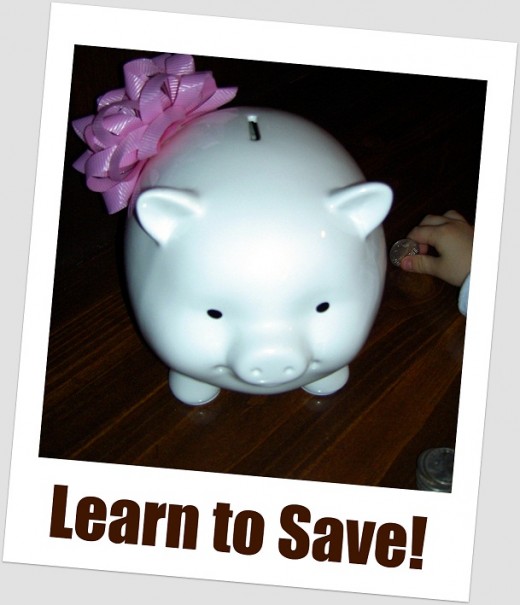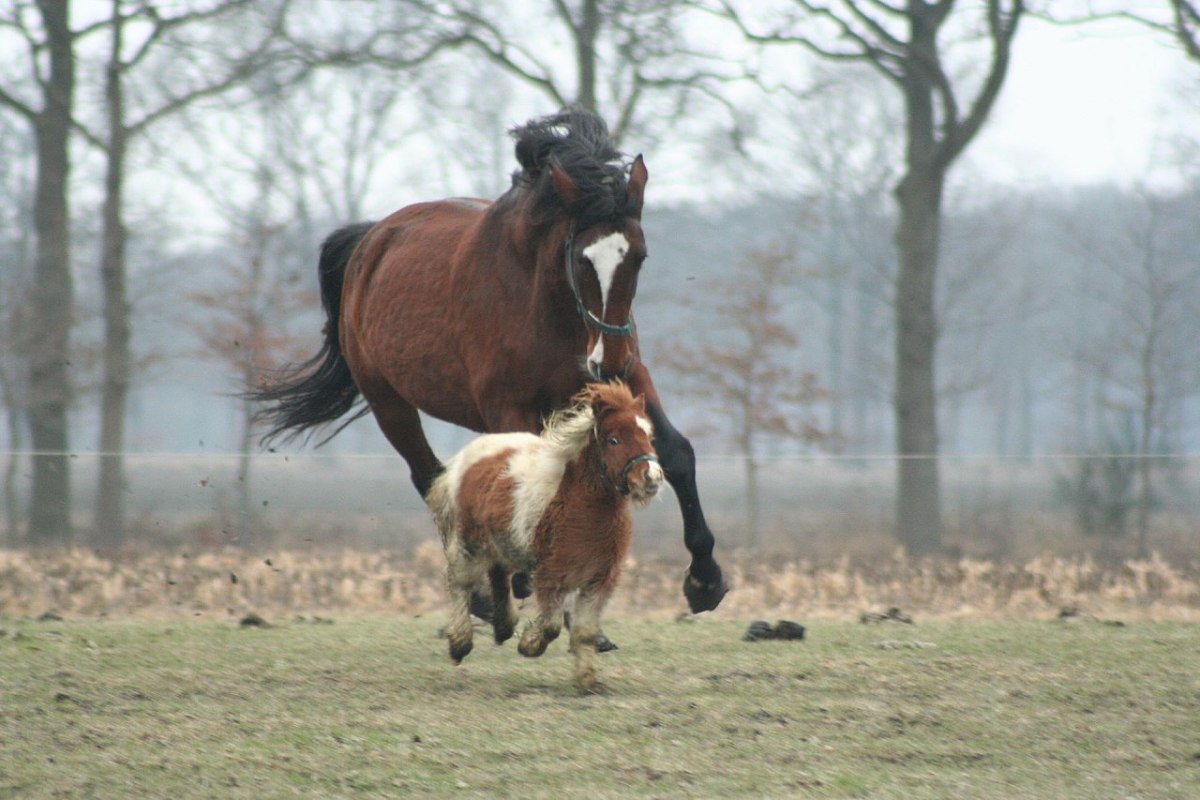How do you teach kids the value of money?

If you are reading this hub I assume you want to teach your children the value of money, and make them realise that 'money doesn't grow on trees'. I was one of the fortunate children, (kids if you prefer that term), and whilst I didn't really appreciate it at the time, my parents did manage to bring me up to truly respect money, not take it for granted and certainly not treat it as if it 'grew on trees.' If you want to know how they achieved this I hope you will read on and see that teaching your children to be financially responsible and to have a respect for where money comes from mainly requires a degree of common sense, and of course some willpower on your part. In the long term your adult children will thank you for this, even if at a young age they stubbornly refuse to see your stances as fair, and complain loudly about the rules you set for them.
Growing up I was like most children, always pestering my parents for something, either a toy, a treat in the supermarket, a horse riding lesson, a horse, etc. Most of the time the answer was no, and for the smaller items I was expected to use my pocket money (which I should add was actually only about two thirds of what other children in my school were receiving). If I was out shopping with my Mum and I wanted a packet of sweets or a drink I would be expected to use my pocket money, and if I didn't have any cash on me the amount borrowed would be deducted from my pocket money the following weekend. This started from an early age, probably when I was about seven years old.
As the next few years passed the luxuries I wanted in life naturally became more expensive than packets of sweets and cans of pop, but although my pocket money had been increased by about ten pence per year, the money still didn't stretch all that far. By now I was at an age I just wanted one thing, and that was a horse or a pony. I had spent many fruitless hours pestering my parents to allow me to have one, entering competitions to win a pony, adding 'a pony' to my letters to Santa and so on. If I couldn't have an actual pony, then I wanted horse riding lessons so I could spend time around horses and learn to ride. In the meantime I devoted every spare minute I had reading scruffy pony books bought from second hand book shops or from jumble sales.

I admit I did become frustrated that one of my friends had a riding lesson every week, and another friend had two lessons a week, in each case paid for by their parents. In my case the only option was to use every penny of my £3 a week pocket money to pay for riding lessons at what was considered the poorest quality riding school on Guernsey. Doing this forced me to evaluate what really mattered to me, and whilst it left me no other money for luxuries like the cinema or sweets, I did enjoy my riding lesson for an hour each week and felt it was worth the sacrifice.
After a year the prices went up to £3.50 per hour for a lesson, and I panicked that I would have to give up my lessons altogether. Thankfully my Grandmother lived with us, and she kindly helped me out and gave me 50 pence a week pocket money so I could continue my lessons. Perhaps now is a good time to add that I did earn my pocket money, and was expected to feed and clean out our chickens, fill our coal scuttle and often light the fire, help rake up grass cuttings in the garden and many other basic chores in return for the money I received.

Eventually my love of horses resulted in my going on a riding holiday/vacation with some friends in Canterbury in England. I was given a choice by my parents, either to go on the family holiday to North Wales, or have my horse riding holiday with my friends, I could not have both. I chose the riding holiday and had possibly the best holiday of my entire childhood. One problem arose from this holiday though, and that was that I totally fell in love with the beautiful horse I was allocated during my stay. She was a 15.3hh dappled grey mare called Dixie, the kindest, most gentle horse you could imagine, and with a canter that was as smooth as silk.
It came as quite a shock to me to find out that the stables where we were staying would sell off all their horses at the end of each holiday season and replace them with new ones at the start of the next holiday season. Needless to say I was not willing to give up on my beloved Dixie, and I wanted her more than I had ever wanted anything in my life. Result, I returned home to pester the life out of my parents to allow me to have this horse and get her shipped from Canterbury in England to the Channel Island of Guernsey where we were located, after all, we now lived in an old farmhouse complete with two stables and a small paddock, so why shouldn't I be allowed this horse?
I was confident I could talk them around because Dixie was only £750, and the extra costs to get her to Guernsey only brought the price up to £1100. I should have known better, there was no way my parents would agree to this, after all, it wasn't the cost of the horse that was the problem, it was the ongoing upkeep costs, 'food, hay, vets bills' etc. I honestly felt they were being totally unfair, and it wasn't as if they couldn't afford the £1100, but they were adamant it was not going to happen. My frustration must have been evident by my constant sobbing and pleading that I had to have this horse, whatever it took. Eventually a compromise was found, my parents would lend me a deposit of £250 to put down on Dixie, and if the stables agreed to keep her for a year as a working horse in their stables, I would have that year to raise the funds to buy her myself. Assuming I was successful I would then be responsible for all bills and costs relating to her upkeep. I jumped on this like a drowning man grabs for a life buoy, and fortunately for me the stables were happy to go along with the arrangement.

To cut a very long story short I spent the next year not only studying for my exams, but also holding down three part time jobs, as well as doing chores around home in return for further pocket money. Even my sister was paying me 50 pence per night to do her share of each night's dish washing duties. At the end of the year I not only achieved excellent exam results, but I also raised all but £200 of the money I needed to buy Dixie and bring her to Guernsey. My Mum was so impressed by my efforts she gave me the £200 I needed to hit my goal and allow my dream to come true.
The best feeling in the world was the night Dixie arrived at our house. It was midnight when we unloaded her from the horsebox, and the sense of achievement and pride I felt was indescribable. At this point I knew that the way to make your children appreciate the value of money and realise it doesn't grow on trees was to make your children work for the things they wanted in life, even if you were lucky enough to be financially in a position to give them everything they wanted anyway.
Even after this achievement I was given full responsibility for the ongoing costs associated with owning a horse, and ultimately this was over half of my wages each week after I started work. It was still worth every second of the effort involved, and I doubt I would have fully appreciated the joy of having my own horse if both the horse, and all I needed for her had been paid for by my parents.

The moral of this story is that no matter how much you feel you can afford to spend on your children, it isn't always a good thing to do so. How else are they supposed to make something of their lives and to learn the value of money? Children need to work hard for the things they want in life. Do you want your children to grow up always looking for the easy route to the things they want? Could you honestly respect your adult children if they always came running to you when they faced any financial difficulties in their lives? By making them work and save up for the luxuries they want from an early age you are building their characters for the future and showing them that hard work and saving will help them to achieve their goals in life. By all means leave them a good inheritance if you are in a position to, and hopefully by the time they receive it they will not only have taught their own children the same healthy respect for money, but will have ensured their children realise money most definitely doesn't grow on trees (often also known as parents!)
Top Tips to Teach Children the Value of Money
- Make your children earn their pocket money as opposed to simply being given it as a weekly gift.
- Encourage them to get part- time jobs to earn extra pocket money or find industrious ways to make money from home.
- Praise them when they are successful at saving up for things they want.
- Don't give in to them pestering, crying or demanding you buy them the things they want.
- Help them with advice on how to raise funds for themselves.
- When they start work charge them a sensible amount of rent/keep per week for living at home, and make sure this does actually cover your costs as opposed to you ending up subsidising them.
- If you really have to help them out financially, especially when they are older, then charge them interest on the monies you lend them so they don't take you for granted.
Do you make your children work for their pocket money?
Do you charge your adult children living at home a realistic rent/keep that covers your costs?
Are you guilty of simply buying your children things they want without making them earn and save up the money themselves?
Start Teaching Your Children the Value of Money Early.
#4 of 30 in March 2012 Challenge







